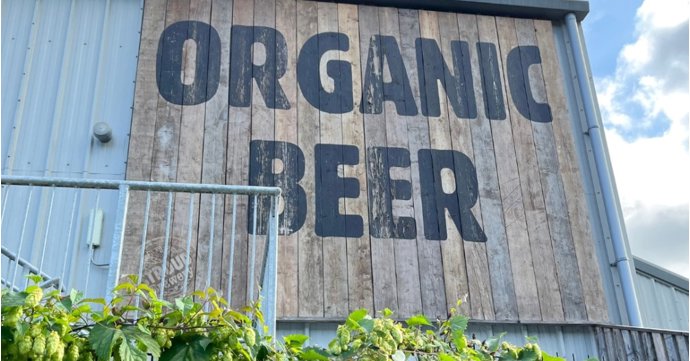Aiming to empower people to create the financial future they want and to have a positive impact on people and the planet, independent financial advisor Parker Financial Advice specialises in ethical pensions.
Here, its director of client services, Ben Parker, tells SoGlos what they've learned over the last 20 years.
What is a common misconception around pensions you’d like to clear up?
Pension pots represent a huge blind spot for people when it comes to their personal impact on the environment.
Each year, the average UK pension member finances 23 tonnes of carbon dioxide emissions through the businesses in which their pension invests.
This comes as a huge surprise to many people. By raising awareness, we hope to present an opportunity for employers and the wider pensions industry to ignite people’s interest in ethical saving for retirement.
Take the average pension pot, what kind of investments would it be made up of?
You would expect the average pension fund to include a mixture of fixed income products, such as government bonds and equities, including stocks and shares.
These would typically come from a variety of regions, such as the USA, as well as developing countries and industries like technology, pharmaceuticals and manufacturing.
To manage risk, fund managers will spread the investments across these categories to avoid having all their eggs in one basket.
Is there a different approach?
By switching to a sustainable pension, the average UK pension member could reduce their carbon footprint by 19 tonnes - the combined weight of three elephants and the equivalent of planting 25 acres of new forest.
It’s also about more than the environment. We’ve identified traditional funds that contain more than 50 holdings in violation of the UN global compact principles, or that are facing severe controversies related to the environment, customers, human rights, labour rights or governance.
More than a dozen holdings have involvement in controversial weapons, such as landmines, cluster munitions or biological weapons.
Top sustainable funds avoid all of these holdings.

How are you different?
We’re here to give our clients the confidence to create the financial future they want, through face-to-face independent financial advice.
We’ve got over 20 years of financial services and pension experience and we’re independent, so we don’t have to use a particular provider.
We’ll scan the whole market to find the solution that’s best for our clients. We’ll meet with employers and employees to talk through any changes to understand each situation to ensure we can build a plan that’s right for them.
We have expertise in sustainable investment and can protect firms' reputations by ensuring their investments match any marketing messages about sustainability and give confidence to employees that the company they work for wants to make a positive impact on our environment.
What kind of a difference do your pensions make?
Our sustainable pensions make a huge difference. They help our customers build a brighter financial future for themselves and their families, while contributing to society and the planet.
Moving your pension could be the biggest individual change you could make to support the environment.
Making your pension green is more powerful than giving up flying, giving up meat and switching your energy provider.
Research by Make your Money Matter shows for an average pension holder, two pounds in every 10 of your money is linked to environmental devastation around the world.
It’s about more than the environment too. A sustainable pension helps us align our investments with our values. It can exclude companies based on moral or ethical views, or religious beliefs. For example, sustainable funds often exclude investments in tobacco, arms, or gambling companies.
Collectively, this could all make a big difference - there’s about £2.7 trillion invested in UK pensions.
Our pension money is doing brilliant things – building wind farms, curing disease, making homes and driving innovation. But it is also supporting companies that are engaged in deforestation, damaging the environment and threatening lives and livelihoods across the planet.
What do you find surprising about the pension system?
It’s complicated! We speak to lots of people who have no idea who manages their pension, what it’s invested in and even how much money is in it. Although in a way, this is also not surprising, as it can be difficult to find out or interpret the information you’re given.
Do you think society is changing and becoming kinder and more socially aware?
Absolutely. We are increasingly making conscious decisions with sustainability and the environment in mind.
Particularly in finance, there is a growing awareness of the potential impact sustainability issues can have on investments.
In the United Kingdom, studies show about 80 per cent of potential investors would be more likely to invest if they were avoiding unethical companies, or that their money could create a positive impact.
We believe interest will continue to grow and we know almost all millennials are interested in sustainable investment.

What kind of feedback are you getting from those who change their pensions, so they are more aligned with their values?
The feedback has been very positive. Those who have made the change feel peace of mind for getting better organised and in control.
We’re also pleased that those who have moved their pensions in a more ethical direction have found the process straightforward and that we've managed to translate all the confusing terminology into everyday language.
Some clients have been surprised by what they were already invested in. For example, one client had four companies in the tobacco and fossil fuels sector in his top 10 holdings of his existing workplace pension, despite being keenly interested in sustainable investment.
Feedback from clients shows considerable interest in climate themed investments from those who change their pensions.
If you’d like to highlight one major message to those saving for retirement, what would it be?
Don’t put it off! You’re never too young to start saving, or too old to start planning for retirement.
Research suggests that you’ll be (on average) £47,000 wealthier in the long-term if you have a financial advisor. A report by Zurich estimates that almost 41 per cent of those without financial advice will run out of money in retirement.
What's more, moving your pension in an ethical direction could be the biggest individual change you could make to support people and the planet.
If you’re an employer, what type of workplace pensions are there to choose from?
If you’re an employer and your employees are over 22 years old and earn more than £10,000, you have to provide a workplace pension.
To help employers manage this change, the government set up the National Employment Savings Trust. This was a quick, efficient and cheap way of becoming compliant by offering employees a workplace pension.
What you get though is limited flexibility on investments, no dedicated service team and no access to retirement solutions or advice when employees approach retirement.
Where we come in is when employers want to find what the best pension is for their business, versus what they need to do to be compliant.
Alternative pension providers include Royal London, Aegon, L&G, Prudential, Scottish Widows and many more.
Like any product or service, the ‘bells and whistles’ with each provider vary, but the key things we’re looking for are competitive charges, flexibility on investments to match appetite for risk and sustainability objectives, a suite of retirement options, online portals, mobile apps, as well as comprehensive and clear communications for employers and employees.

















